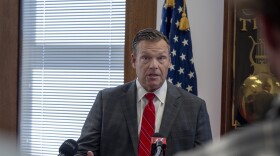The solution to the physician shortage in Kansas could be allowing nurses with advanced skills to become more independent of physicians say advocates of changing state law in a recent article from the Kansas Health Institute. Under current regulations, an advanced practice registered nurse, APRN or nurse practitioner, has to work under a “collaborative practice agreement” with a supervising physician.
A proposal that would eliminate that requirement is expected to come before the legislature. It would allow APRNs to diagnose, treat, and prescribe medications for their patients. It would require a “transition-top-practice period” under physician supervision, which would be about 2,000 hours.
Marilyn Douglass is an advanced practice registered nurse in Garden City and chair of the APRN Task Force. She says established practices are doing well, but for APRNs starting out is tough.
"The biggest barrier that the signed physician agreement presents is in starting a practice. If we want to improve access to care for Kansans, we need more providers out there so that patients can call and get an appointment in a reasonable period of time. Patients deserve access to care, not to have to wait months to establish with a physician,” said Douglass.
She went on to say she knew of at least one example in southwest Kansas where a nurse working for a soon-to-retire physician wanted to keep the clinic going but was having trouble finding a new supervising doctor to step in.
"Just like a lot of other states, we have a big population of Kansans who are going to need a primary care provider. There's not enough physicians for all those new people, let alone an aging population that requires more visits and more complicated care," Douglass said.
Jerry Slaughter is the executive director of the Kansas Medical Society, the state’s leading doctor group. He said he sees no reason to change the state’s current law dictating nurse practice arrangements.
"The system we have today has a long history of working pretty well. It provides a high degree of flexibility (without) requiring over-the-shoulder supervision," of the nurses by doctors, Slaughter said.
"We can't support the (nursing group’s) proposal as written,” he said. “There aren't any limitations — at least that we've seen — in the bill that would restrict APRNs from doing anything that a physician does. For example, we don't see anything in the proposed bill that would prohibit a nurse from doing surgical procedures."
The rest of the story and state comparisons from the Kansas Health Institute can be found here.







